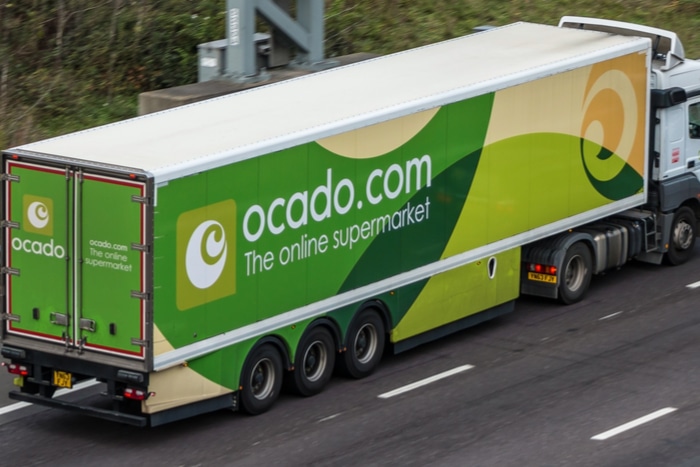Ocado is on the verge of being promoted into the FTSE 100 for the first time thanks to a successful year that saw its share price treble.
The rapid growth comes after the online-only grocer managed to sign deals in recent months with grocery chains in France, Sweden, Canada and the US to license out its market-leading online delivery technology.
Shares in Ocado rose 44 per cent on the day its tie-up with US grocery giant Kroger was announced earlier this month, adding £1.6 billion to its stock market value.
READ MORE:
This makes Ocado worth more than retail bellwether Marks & Spencer, which was valued at £4.8 billion before its full-year report last week revealed poor figures and a new tranche of store closures as part of its five-year turnaround plan.
“In a sign of the old economy giving way to the new, Ocado now looks set to gain promotion to the FTSE 100 in this reshuffle,” said Laith Khalaf, a senior analyst at stockbroker Hargreaves Lansdown.
“A spate of licensing agreements has trumped up the share price in recent months, and shows that Ocado is well-versed in the art of the deal.
Despite predictions that it would drop out, M&S appears to have just survived being relegated in the latest FTSE 100 reshuffle, which is due to be confirmed today and is based on last night’s closing prices.
However, if weak turnaround continues, Khalf said M&S could still drop out of the FTSE 100 later in the year.
“Marks and Spencer looks like it’s avoided relegation from the FTSE 100 by the skin of its teeth,” he said.
“Reshuffles happen every three months though, so this is a stay of execution rather than a full pardon.
“M&S boss Steve Rowe is promising transformation, and has been candid in admitting it’s a lengthy road ahead.
“However the pace of disruptive technological change means making M&S special again is a moving target, and management are taking aim from a long way out.”
Meanwhile, household names Mothercare, Carpetright and Moss Bros all look set to exit the FTSE All Share, after the businesses announced fundraising and wide-reaching restructuring measures that diluted their share equity to a fraction of its previous value.
“Shares in these companies will be jettisoned from the large number of passive funds which track this index,” Khalaf said.
“These companies are struggling to make ends meet, so losing their place in the index is probably a peripheral concern, though it still has negative implications for the liquidity in these stocks.
“The triple relegation is an indication of just how tough things are on the high street.”
The London Stock Exchange undergoes a reshuffle of the UK’s top 100 companies in stock market value – or the FTSE 100 – index every three months.
The reshuffle factors in the growing fortunes of some firms and the deterioration in others.
Click here to sign up to Retail Gazette‘s free daily email newsletter


















